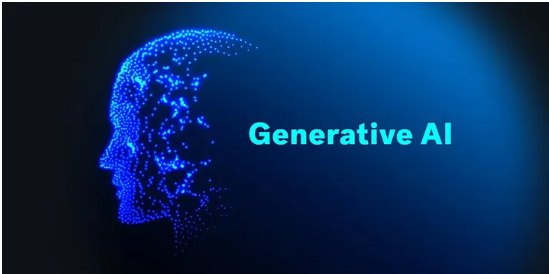.svg)

Resisting the Tendency to “Over-Rely” on Generative AI
Introduction
GenAI refers to a type of artificial intelligence that is often used to create new content, rather than to analyze, interpret, and classify data.
It has become increasingly popular as of late in organizations.
The Hazards Associated with Over-Reliance on GenAI
There are many great things about GenAI. Several examples include: (1) GenAI’s ability to rapidly create and summarize content, (2) the potential for increased workforce productivity and efficiency, (3) providing employees with a cursory understanding of a topic quickly, and (4) enhanced levels of creativity and innovation.
Yet, many of these arguments, when viewed under a more discerning lens, appear somewhat suspect.
The point of this discussion is to highlight the importance of being mindful of some of the negative ways in which GenAI might influence you and your organization’s workforce. Below, I outline some of the major issues as I see them.
- Skill Depletion: There is a metaphor called the “bathtub metaphor” commonly used in turnover research. This metaphor attempts to use the filling and leaking of the tub as ways to discuss acquisition and separation of employees within organizations. Using this same metaphor, one could also argue that, over time, particularly when important skills are not continuously used, a “cooling effect” occurs, where critical thinking, reasoning, and communication skills diminish. This phenomenon is likely to occur the more one relies on GenAI to create content. Thus, for example, in order to ensure these skills remain honed, employees should use GenAI less to create new content, and more to summarize content they have already created.
- Depth and Breadth of Knowledge: Use of GenAI to create and summarize content can lead employees to forego training and learning and development opportunities, which, while taking more time and effort, ultimately lead to a deeper and broader understanding of topic areas in which they must be experts. This, in turn can hinder one’s capacity for innovation and creativity.
- Short Term Orientation: The ability of GenAI to provide quick answers and solutions is likely to lead to a focus on short term gains, reducing one’s concern for long-term outcomes.
- Fragmented or Reductionist Thinking: GenAI can lead to reductionist or simplified thinking, which involves breaking down complex problems into smaller, simpler parts. While this can help simplify decision-making and free up focus for more high-value tasks, it can also lead to oversimplification, and missing crucial context. This can result in an incomplete or inaccurate understanding of how knowledge areas relate to one another within and across topics.
How to Optimize Use of GenAI While Maintaining and Enhancing Expertise and Skills
Strategic Application of GenAI
- Critical Thinking & Verification: Never accept GenAI outputs at face value. Develop and practice rigorous fact-checking, cross-referencing information, and evaluating the quality and bias of AI-generated content.
- Problem-Solving: Use GenAI to explore different angles of a problem, generate potential solutions, or summarize complex information related to the problem. Then, apply your own problem-solving skills to analyze, synthesize, and select the best approach.
- Creativity & Innovation: Leverage GenAI for brainstorming, generating diverse ideas, or getting past creative blocks. Use its output as a springboard for your own original and innovative contributions.
- Communication & Prompt Engineering: Hone your ability to articulate your needs precisely to the AI. Effective “prompt engineering” is a crucial skill for getting valuable output from GenAI. Furthermore, refine your own communication by using AI to summarize content you’ve already created, helping you to identify areas for improvement in your own writing.
- Define AI’s Role: Clearly identify which tasks GenAI can genuinely enhance (e.g., summarizing long documents, generating preliminary drafts, basic data analysis) and which tasks require your specialized human skills (e.g., strategic planning, empathetic communication, nuanced decision-making, ethical considerations).
Deepen Your Knowledge and Expertise
- Don’t Skip the Learning: Resist the temptation to use GenAI to bypass fundamental learning or training. While AI can provide quick overviews, true expertise comes from deep dives, diverse learning resources, and hands-on experience.
- Use AI for Learning: Instead of asking AI for the answer, ask it to explain complex concepts in different ways, provide examples, or even quiz you on a topic. This can be a valuable supplement to traditional learning.
- Contextual Understanding: Focus on developing a comprehensive understanding of the context surrounding your field. AI might provide isolated facts, but only human expertise can connect those facts into a coherent and nuanced understanding.
- Identify Gaps: Use AI to identify potential gaps in your own knowledge by seeing what it generates, then actively seek to fill those gaps through traditional research and learning.
Latest Articles
Interviews. Applications. Candidate recruiting. Employee onboarding. The world of recruiting has no limit. Start with our blog if you don’t know where to begin.




